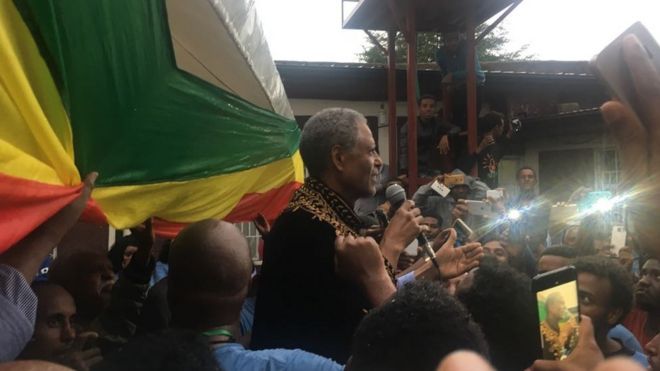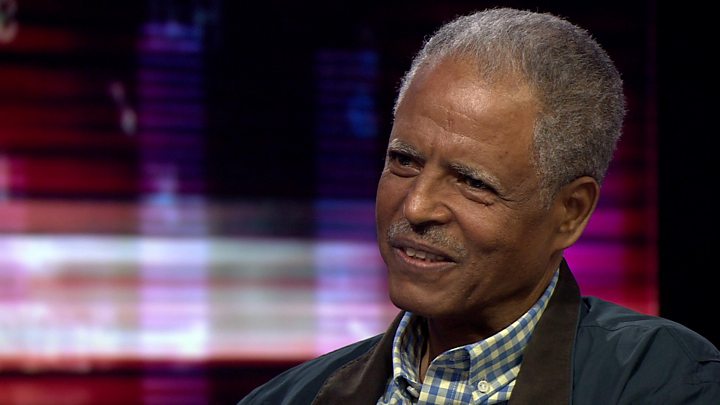Ethiopia's Ginbot 7 opposition movement suspends armed resistance

an Ethiopian rebel group has suspended its armed resistance against the government.
Ginbot 7 said Prime Minister Abiy Ahmed's reforms had given it hope that "genuine democracy" may be "a real possibility".
Earlier, the government said it had unblocked 264 websites and TV channels.
This is the latest of numerous changes made since Mr Abiy came to office in April, relaxing the state's previously tight grip on power.
- Africa Live: More on this and other stories from the continent
- Why Ethiopia could be on the verge of a new dawn
- Is this the man to change Ethiopia?
- Why landlocked Ethiopia wants to launch a navy
Ginbot 7, which is based in neighbouring Eritrea, had been designated a terrorist organisation by previous governments.
Its secretary-general, Andargachew Tsege, was seized in Yemen in 2014, and then sent to Ethiopia where he had been sentenced to death in absentia in 2009 for allegedly plotting a coup.
The Ethiopian government pardoned Mr Tsege on 29 May and he has since returned to the UK, where his family lives.
Mr Tsege recently told the BBC that his release came after Prime Minister Abiy had threatened to resign.

In recent years, Ethiopia has been riven by protests by members of the country's two largest ethnic groups - the Oromo and the Amhara.
Demonstrations first spread across the country in 2015 amid calls for political and economic reform and an end to state corruption.
The government was accused of human rights violations in that time - including torture and extrajudicial killing of political dissidents.